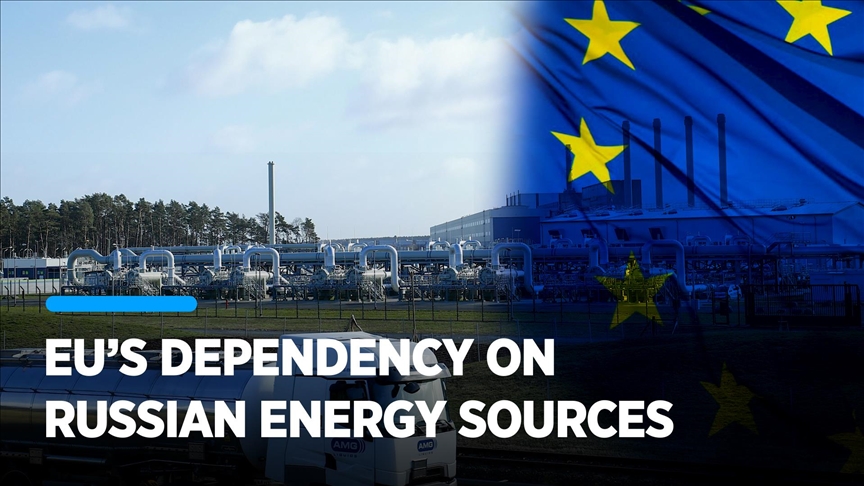Will the EU ever end its dependence on Russian energy resources?
Europe imports 90% of its gas, more than 40% of that comes from Russia, says EU Commission's president

ANKARA
Several European countries are taking new steps and initiatives to decrease their dependency on Russian energy, as Russia is accused of financing its war on Ukraine through its oil and gas exports to Europe.
G7 leaders have recently pledged to end dependency on Russian energy by phasing out or banning the import of Russian oil. The US has already imported a relatively small amount of energy resources from Russia and has banned Russian oil and gas imports.
Ban on oil imports can be an economic blow for Moscow, as Russia is one of the top oil exporters to global markets. However, parts of Europe are heavily reliant on Russian oil, and the EU gets about a quarter of its crude oil from Russia.
While the G7 announced plans to phase out Russian oil imports, the EU is too dependent on Russian gas to consider banning it in the short term since the country has historically been the bloc's largest gas supplier.
And as the European Commission's president, Ursula von der Leyen, puts it, the bloc is vulnerable as it imports 90% of its gas, and more than 40% of that comes from Russia.
This dependency dates back to the 1950s, when most of Europe burned coal, generating carbon emissions and destroying the environment.
Gas, on the contrary, was cheaper, cleaner, and easier to transport, so it became essential for Europe.
However, the European Commission says it even wants to cut dependency on Russian gas by two-thirds this year and end its reliance on Russian supplies completely well before 2030.
Several alternatives, such as switching to alternative supplies and expanding clean energy.
The new plans come on top of climate change policies the EU is currently negotiating to cut emissions, and this would alone cut EU gas use up to 30% by 2030.
The commission says the US and Qatar could replace more than a third of what Europe gets annually from Russia.
Wind and solar projects are also among the options.
Anadolu Agency website contains only a portion of the news stories offered to subscribers in the AA News Broadcasting System (HAS), and in summarized form. Please contact us for subscription options.







